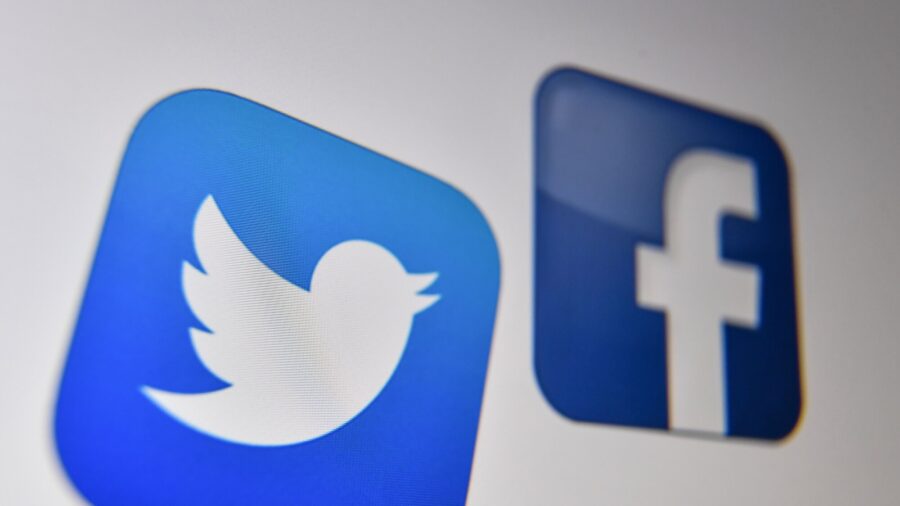Republican state lawmakers are pushing for social media giants to face costly lawsuits for policing content on their websites, taking aim at a federal law that prevents internet companies from being sued for removing posts.
GOP politicians in roughly two dozen states have introduced bills that would allow for civil lawsuits against platforms for what they call the “censorship” of posts. Many protest the deletion of political and religious statements, according to the National Conference of State Legislatures. Democrats, who also have called for greater scrutiny of big tech, are sponsoring the same measures in at least two states.
The federal liability shield has long been called for by former President Donald Trump and other Republicans, who say that Silicon Valley is stifling conservative viewpoints even before the companies cracked down on posts about claims of fraud in the 2020 election.
Twitter and Facebook, which are often criticized for opaque policing policies, took the additional step of silencing Trump on their platforms after the Jan. 6 breach of the U.S. Capitol. Twitter has banned him, while a semi-independent panel is reviewing Facebook’s indefinite suspension of his account and considering whether to reinstate access.
Experts argue the legislative proposals are doomed to fail while the federal law, Section 230 of the Communications Decency Act, is in place. They said state lawmakers are wading into unconstitutional territory by trying to interfere with the editorial policies of private companies.
The bills vary slightly but many allow for civil lawsuits if a social media user is censored over posts having to do with politics or religion, with some proposals allowing for damages of $75,000 for each blocked post. They would apply to companies with millions of users and carve out exemptions for posts that call for violence, entice criminal acts or other similar conduct.
The sponsor of Oklahoma’s version, Republican state Sen. Rob Standridge, said social media posts are being unjustly censored and that people should have a way to challenge the platforms’ actions given their powerful place in American discourse. His bill passed committee in late Feb. on a 5-3 vote, with Democrats opposed.
“This just gives citizens recourse,” he said, adding that the companies “can’t abuse that immunity” given to them through federal law.
Part of a broad, 1996 federal law on telecoms, Section 230 generally exempts internet companies from being sued over what users post on their sites. The statute, which was meant to promote growth of the internet, exempts websites from being sued for removing content deemed to be “obscene, lewd, lascivious, filthy, excessively violent, harassing, or otherwise objectionable” as long as the companies are acting in “good faith.”
As the power of social media has grown, so has the prospect of government regulation. Several congressional hearings have been held on content moderation, sometimes with Silicon Valley CEOs called to testify. Republicans, and some Democrats, have argued that the companies should lose their liability shield or that Section 230 should be updated to make the companies meet certain criteria before receiving the legal protection.
Twitter and Facebook also have been hounded over what critics have described as sluggish, after-the-fact account suspensions or post takedowns, with liberals complaining they have given too much latitude to hate groups.
Trump railed against Section 230 throughout his term in office, well before Twitter and Facebook blocked his access to their platforms after the assault on the Capitol. Last May, he signed a largely symbolic executive order that directed the executive branch to ask independent rule-making agencies whether new regulations could be placed on the companies.
“All of these tech monopolies are going to abuse their power and interfere in our elections, and it has to be stopped,” he told supporters at the Capitol hours before the riot.
Antigone Davis, global head of safety for Facebook, said these kinds of proposals would make it harder for the site to remove posts deemed to be involving hate speech and other harmful content.
“We will continue advocating for updated rules for the internet, including reforms to federal law that protect free expression while allowing platforms like ours to remove content that threatens the safety and security of people across the United States,” she said.
In a statement, Twitter said: “We enforce the Twitter rules judiciously and impartially for everyone on our service—regardless of ideology or political affiliation—and our policies help us to protect the diversity and health of the public conversation.”
By Anthony Izaguirre

